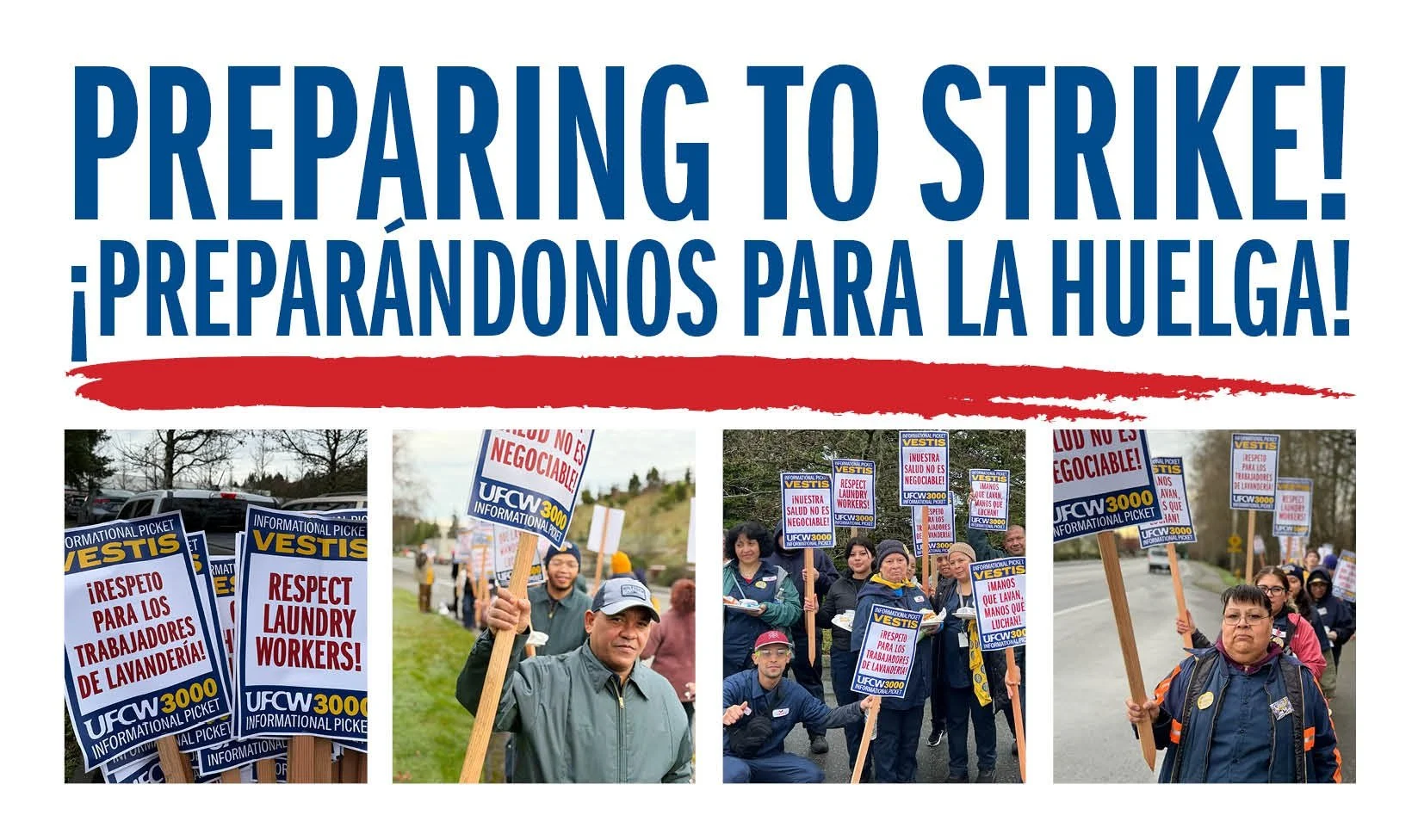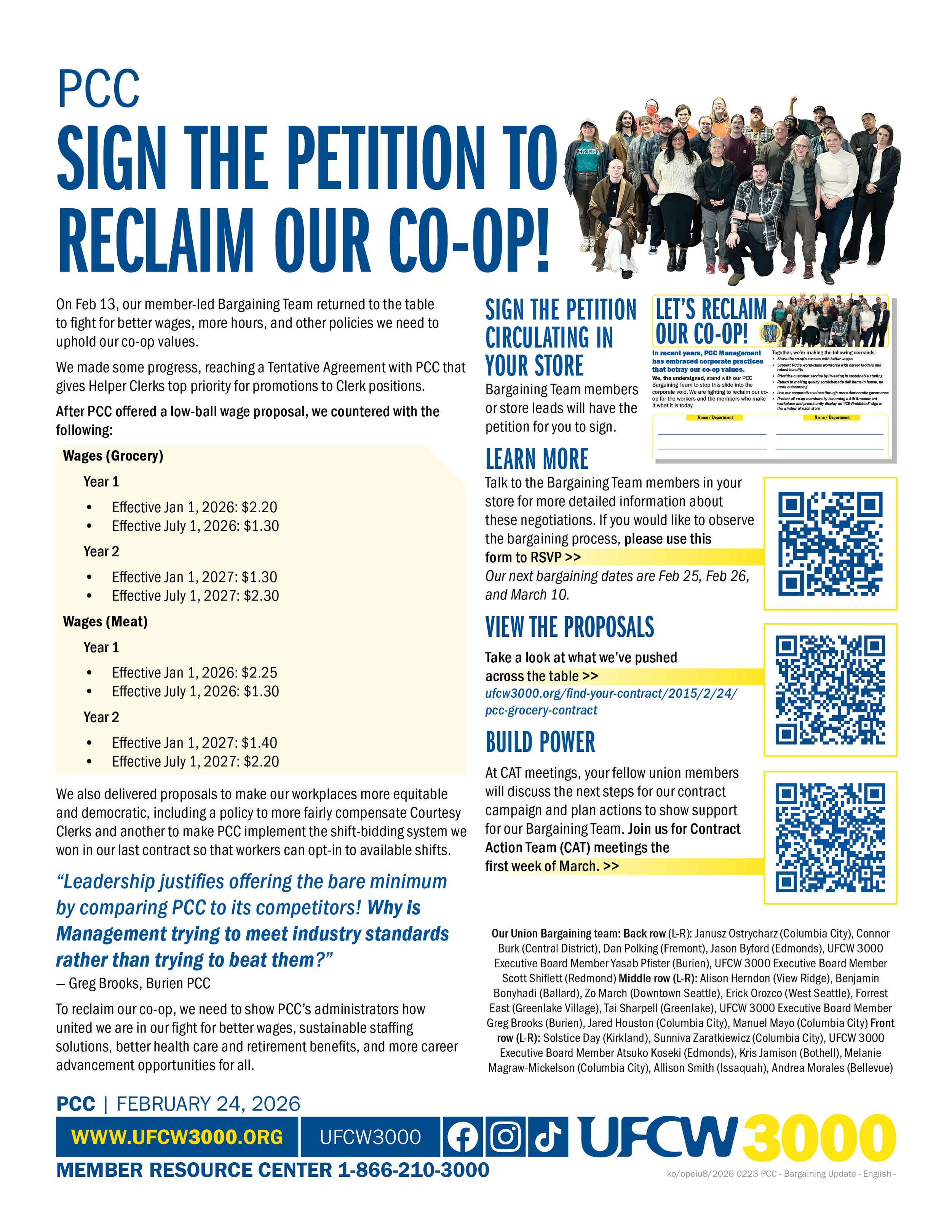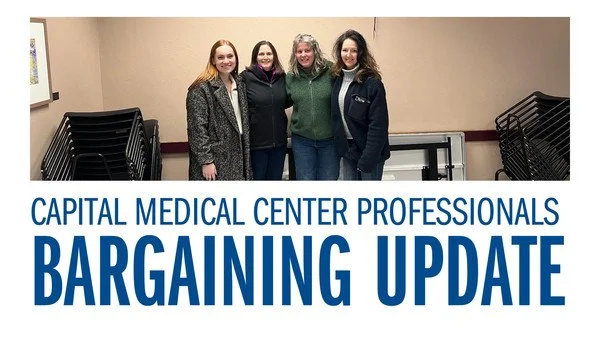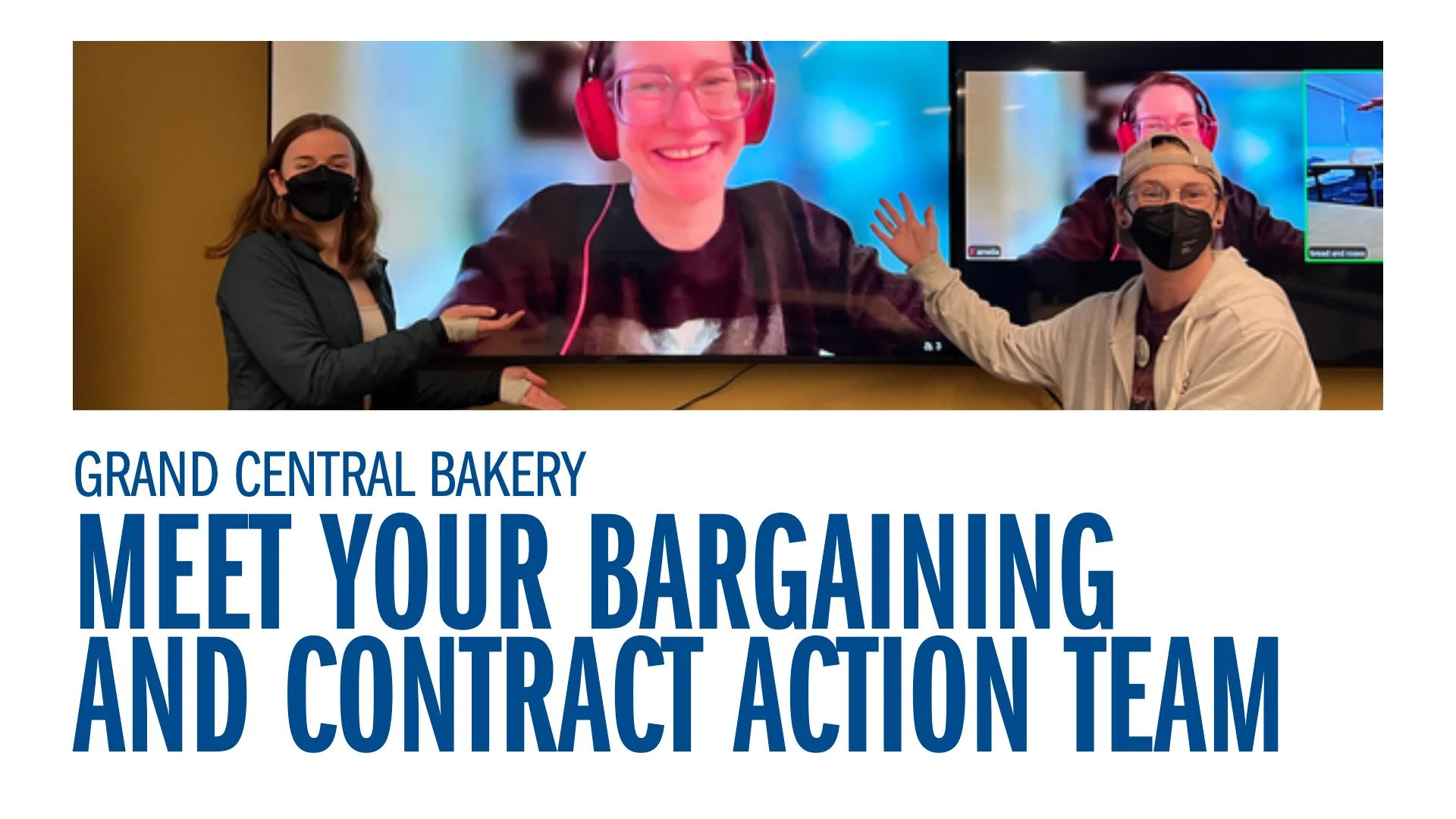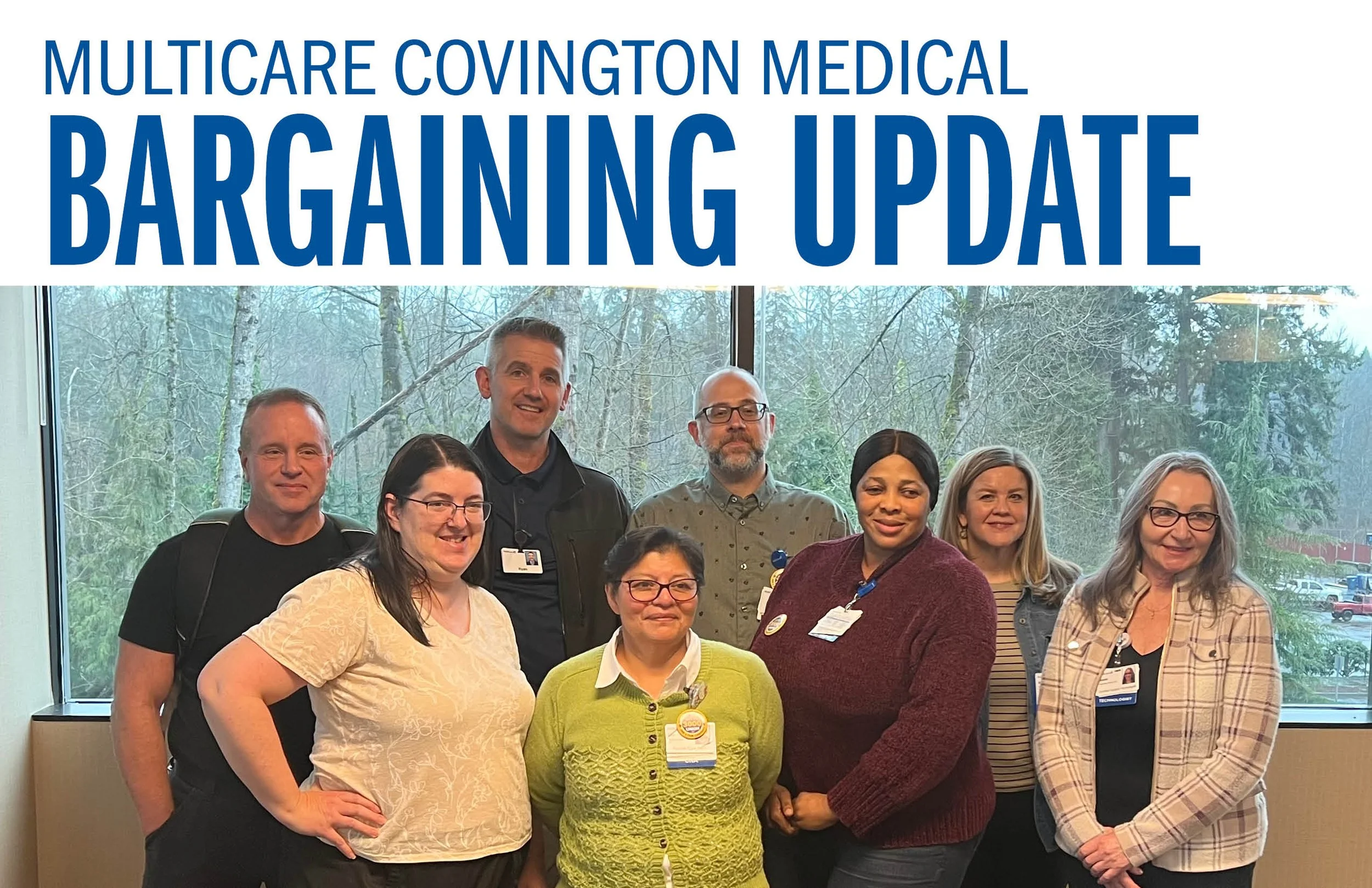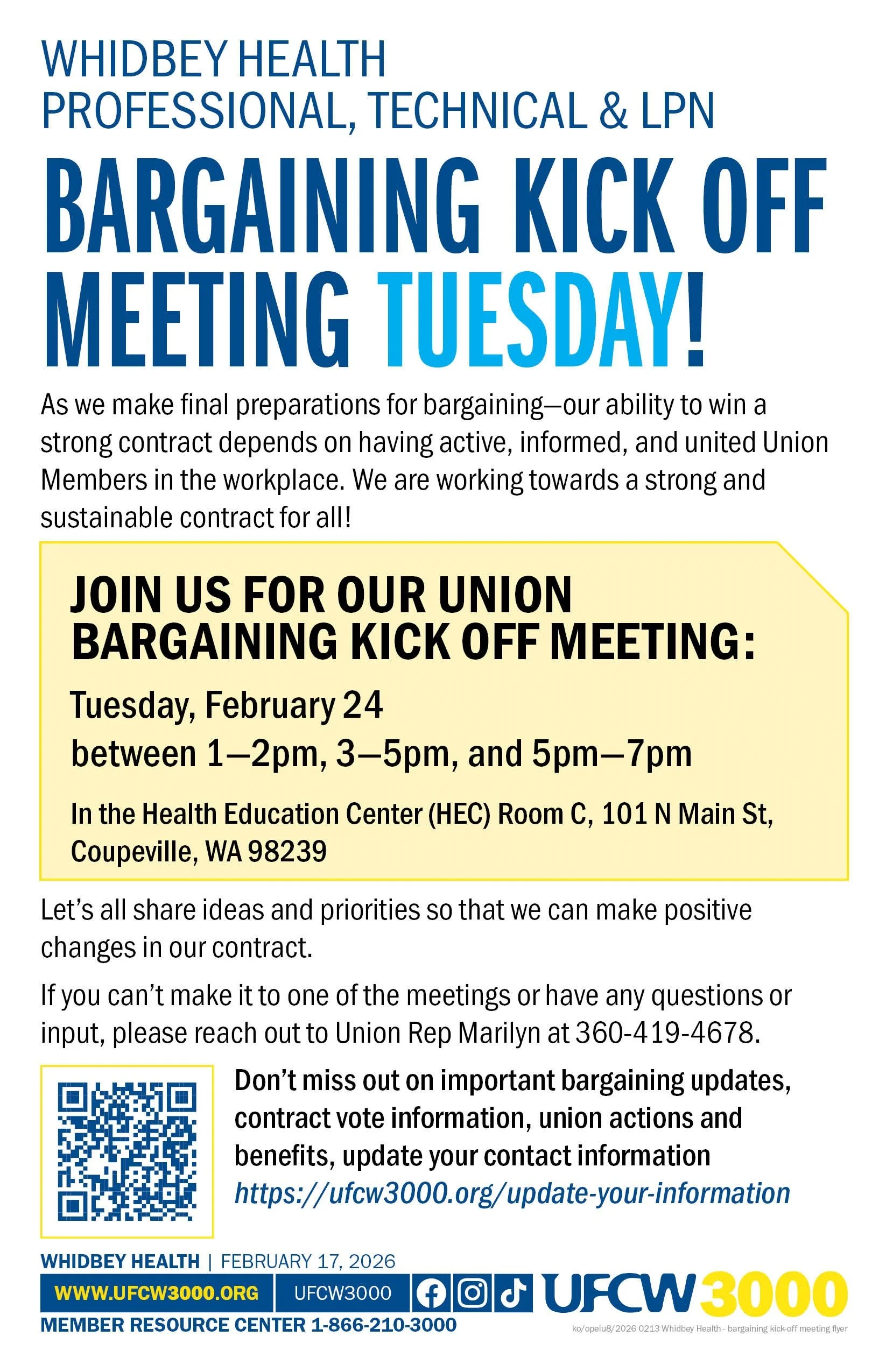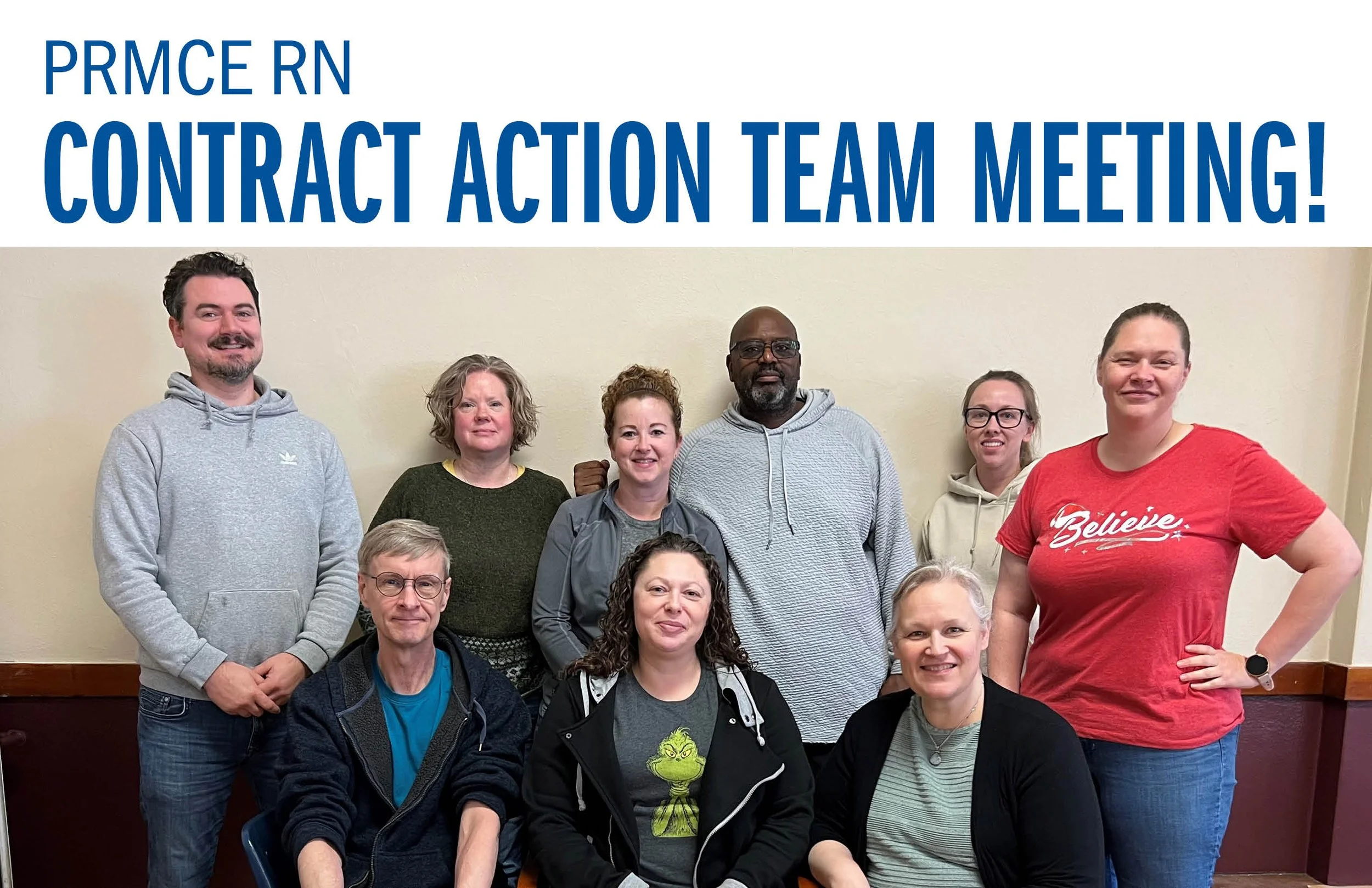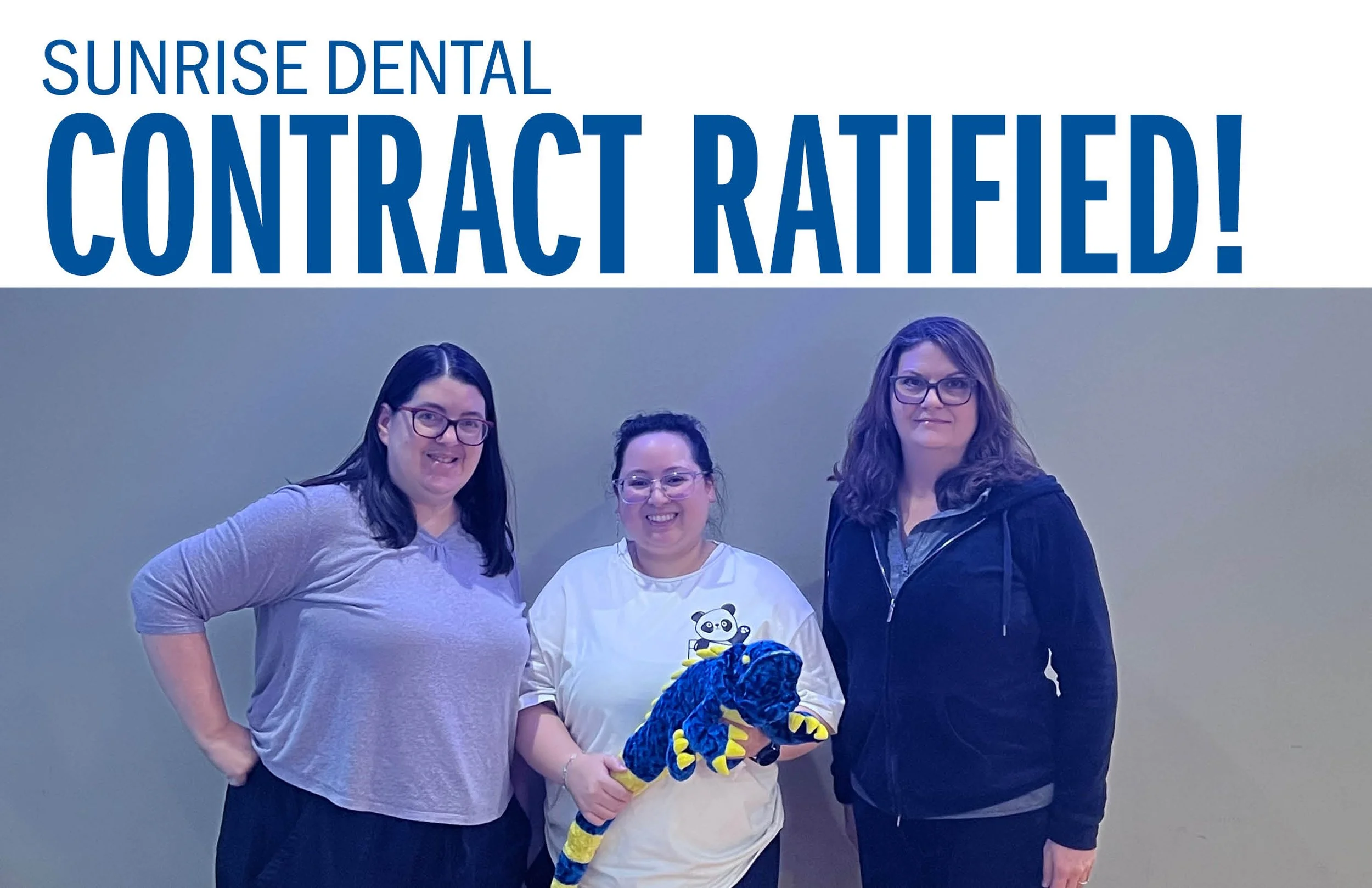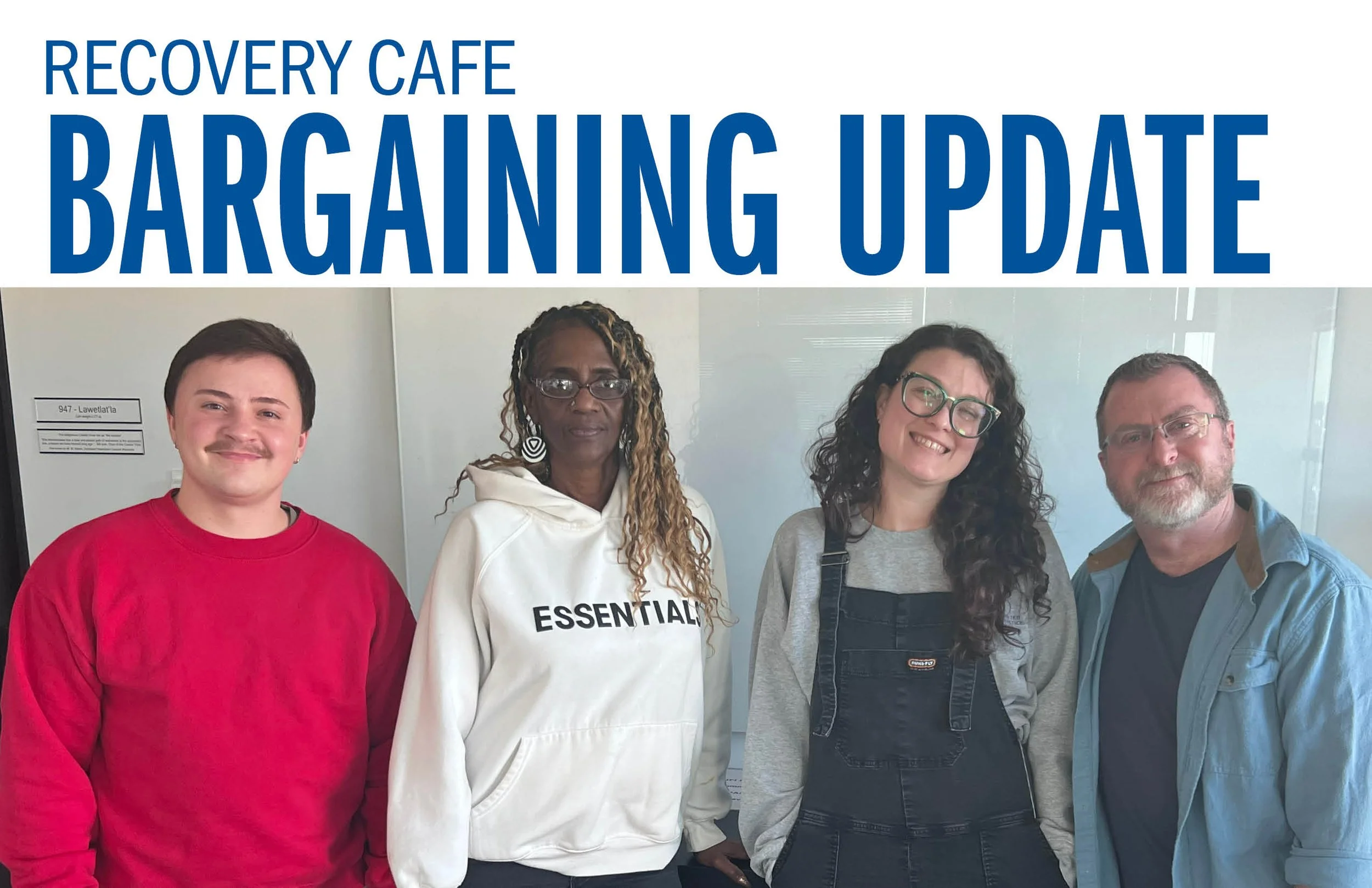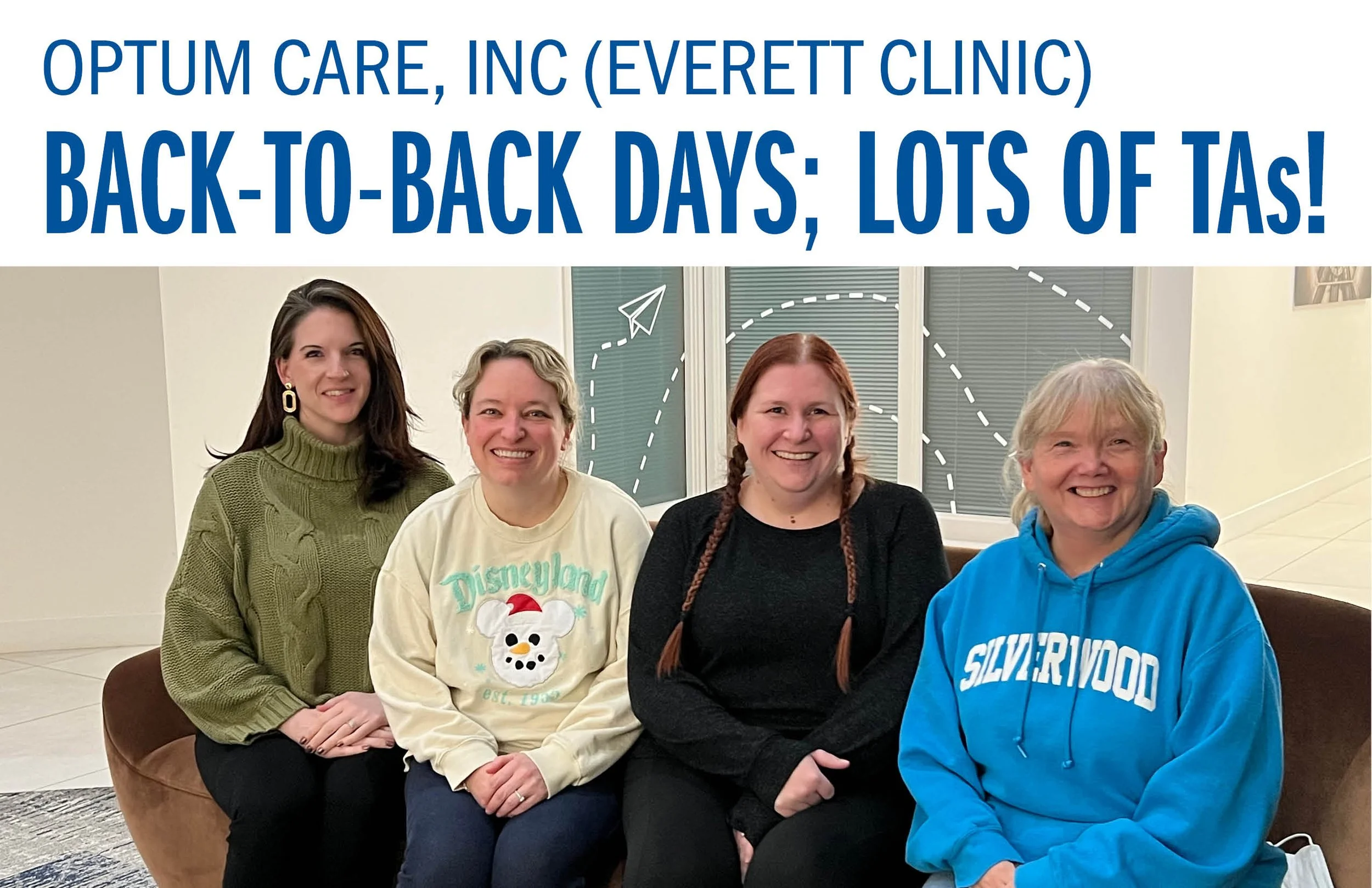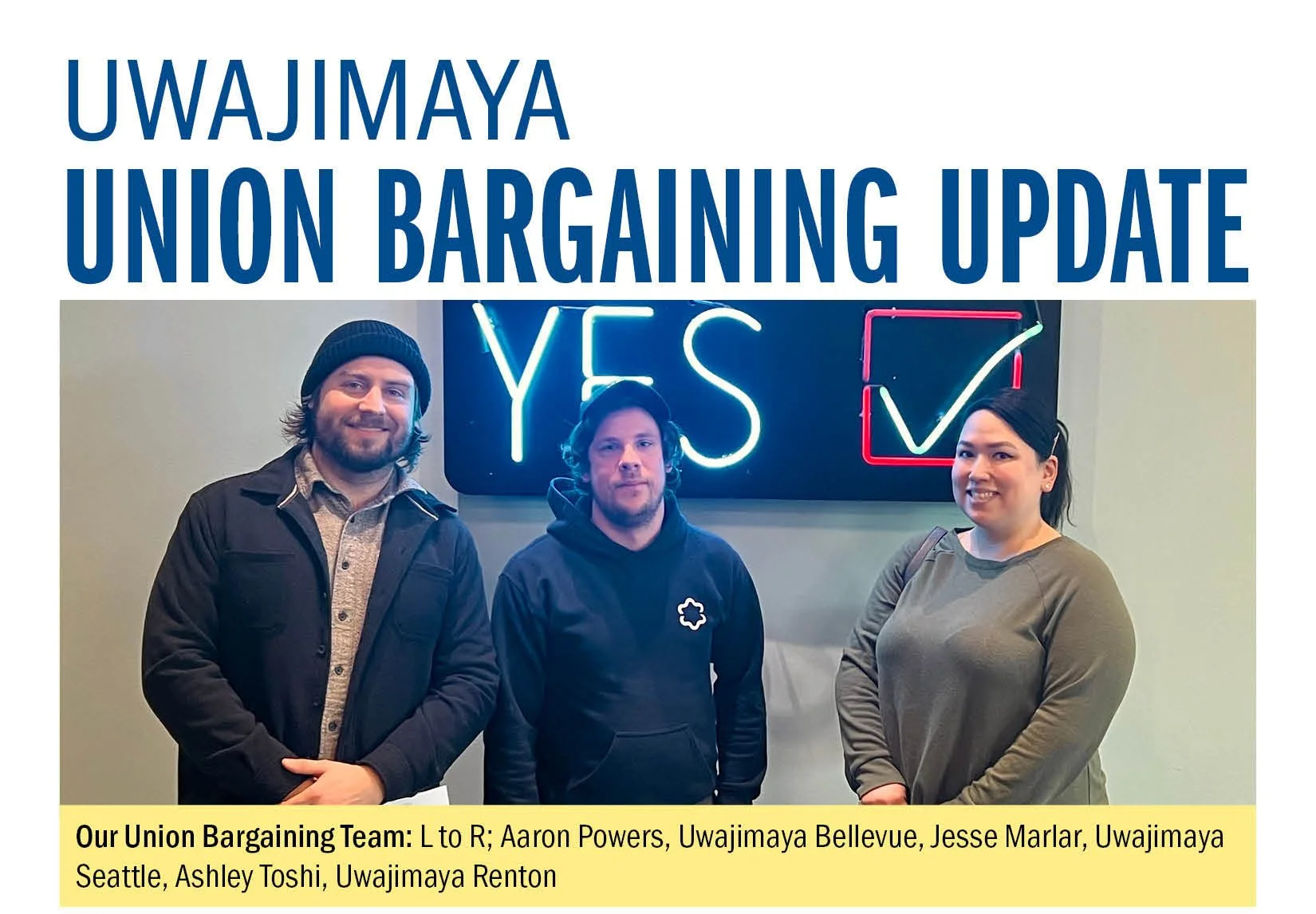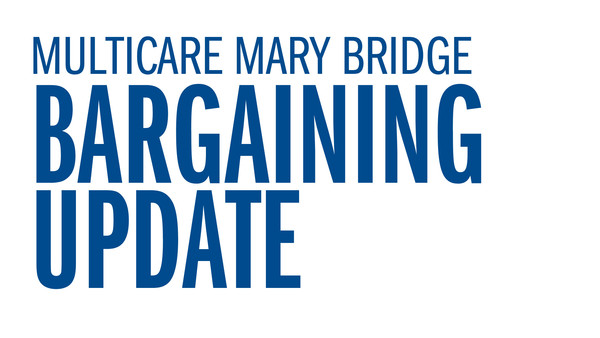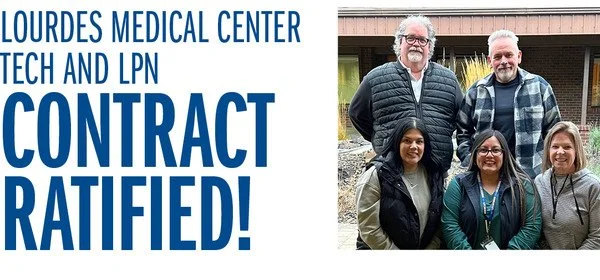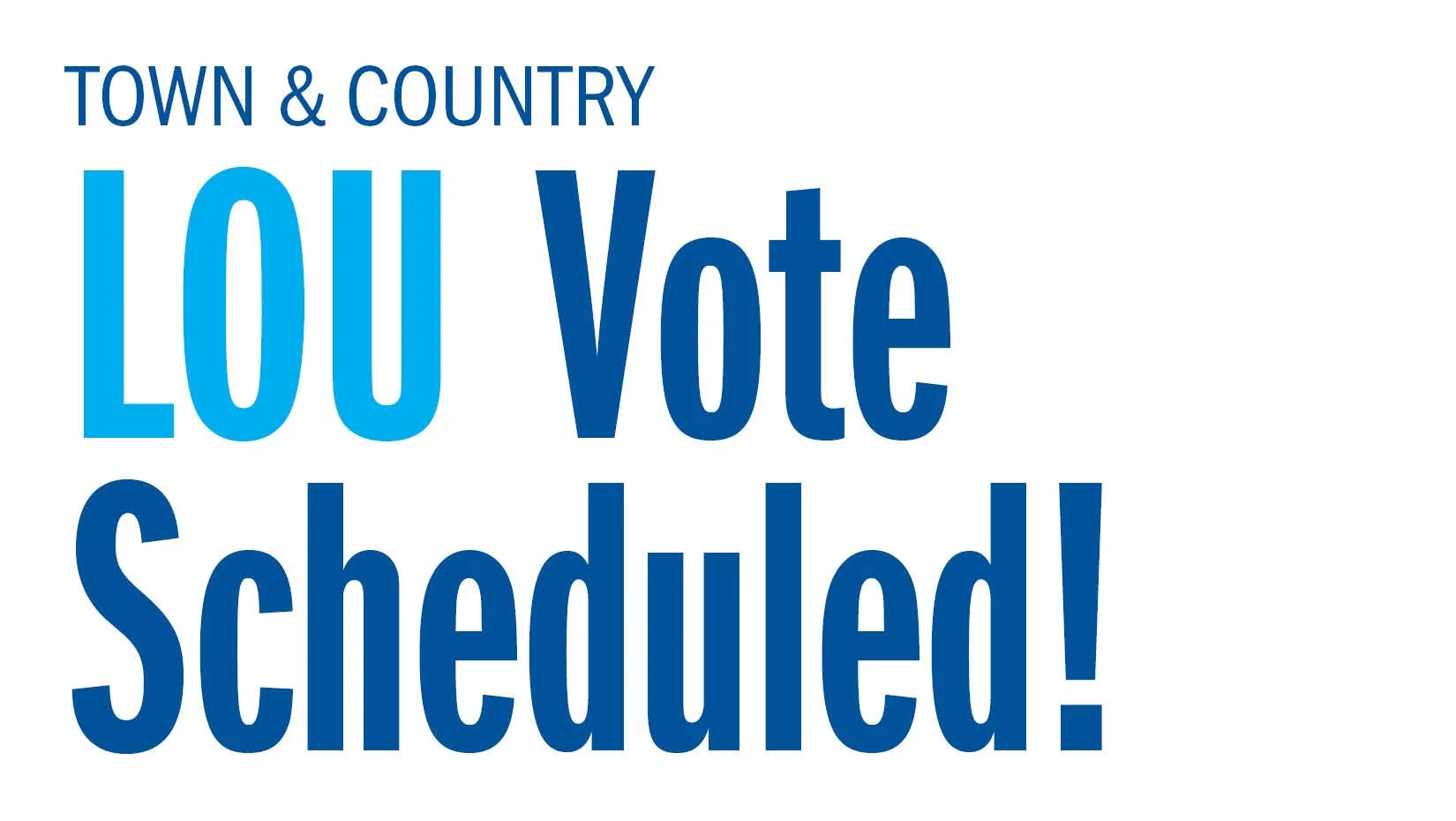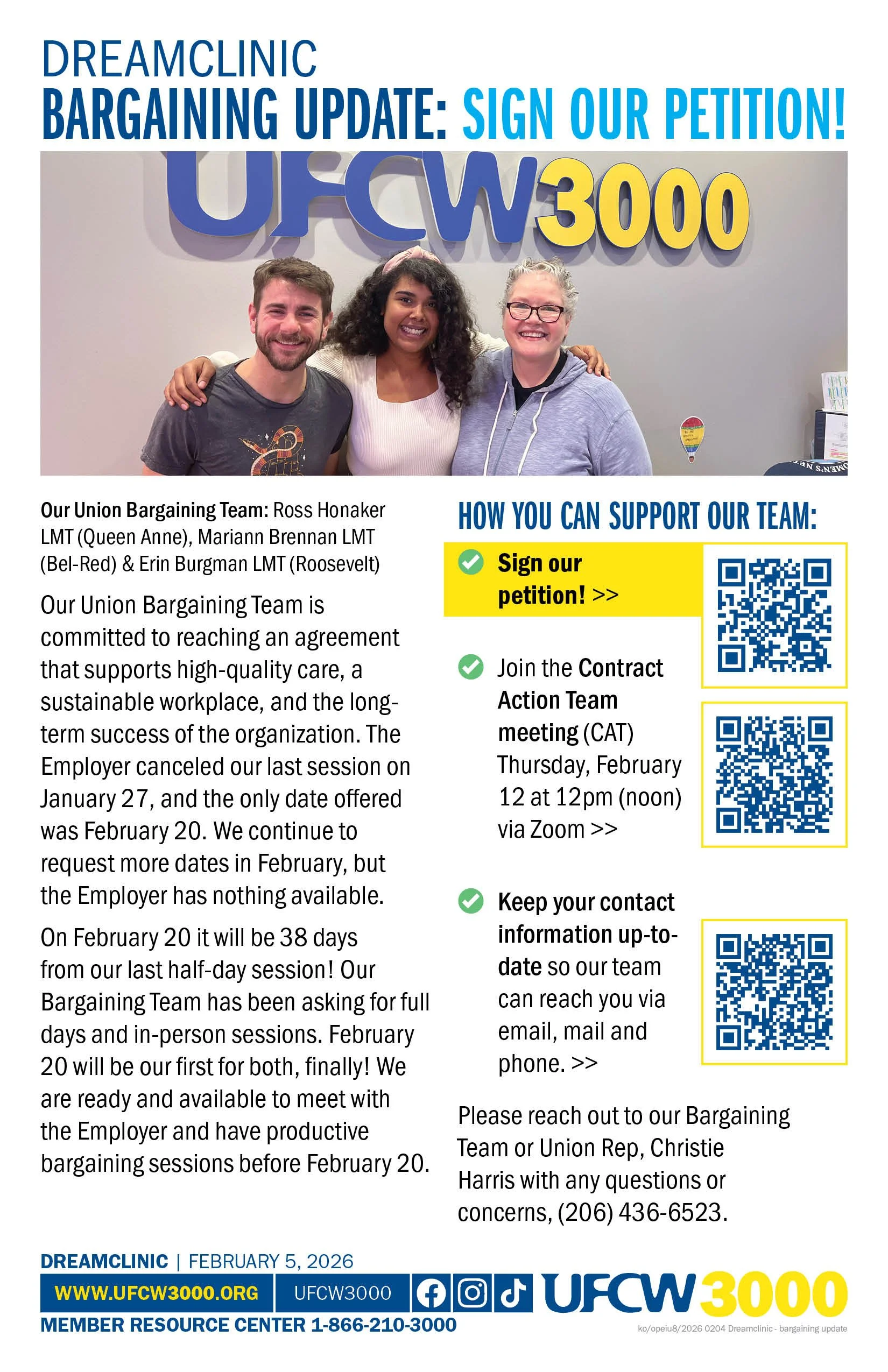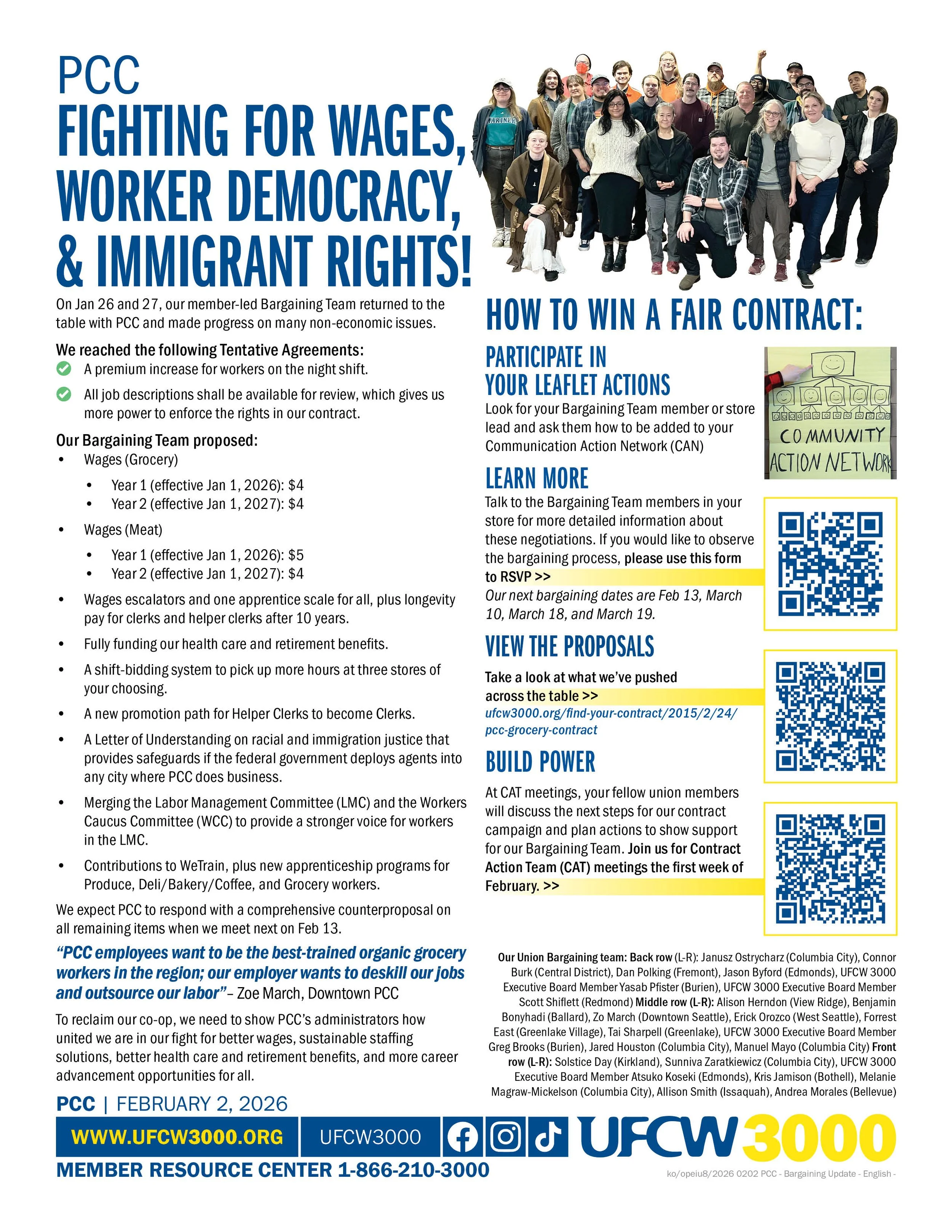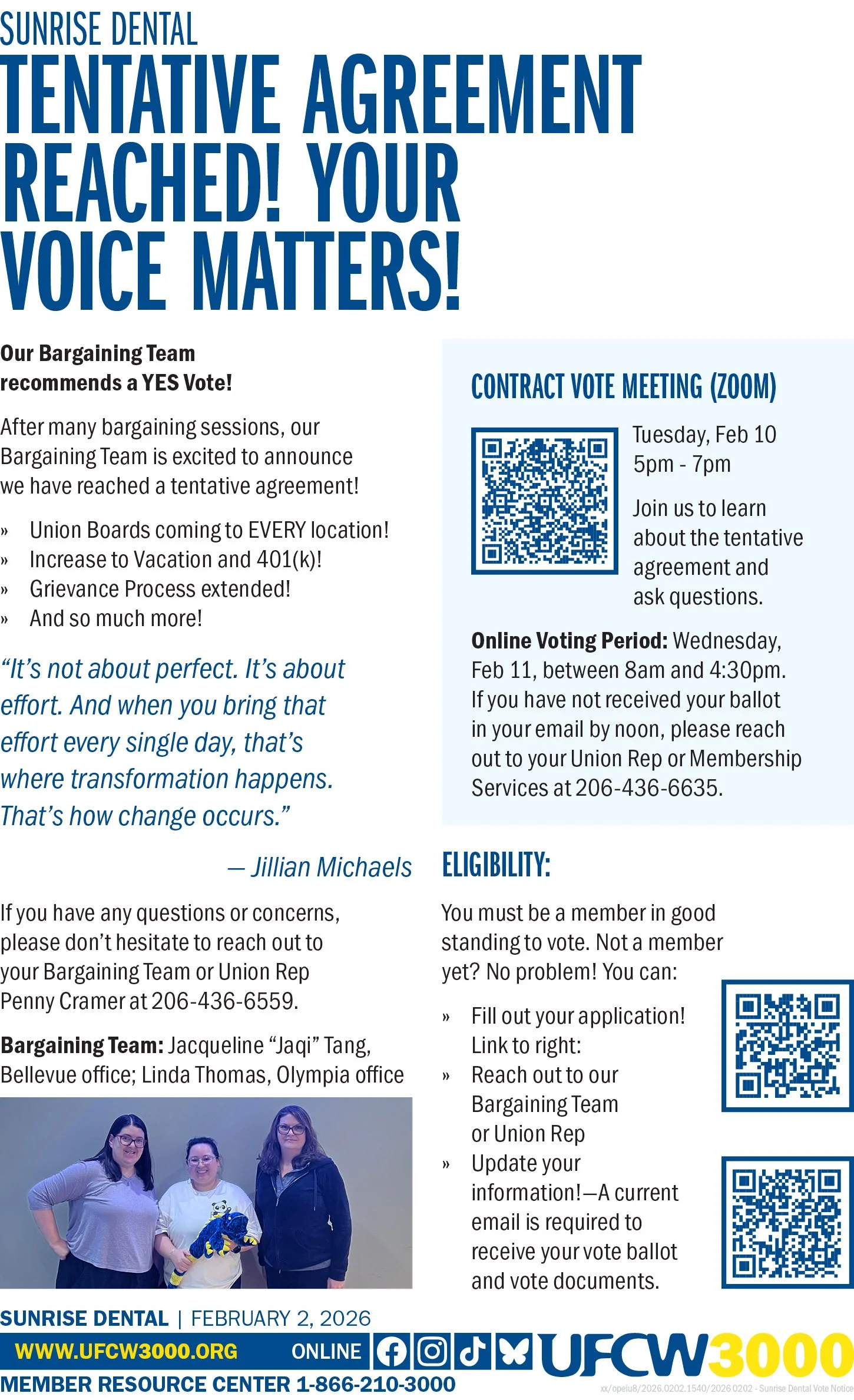Taking Our Fight Against the Corporate Grocery Mega-Merger to the FTC!
/UFCW 3000 Leadership with allies ready to testify before the federal trade commission
UFCW 3000 and our fellow UFCW locals continue to work aggressively to stop the mega-merger between Albertsons/Safeway and Kroger (parent company of Fred Meyer and QFC).
Recently, union presidents from UFCW Locals 7, 324, 400, 770, and 3000 presented compelling evidence to the Federal Trade Commission on the negative impacts of this merger and our negative experiences with past grocery mergers. Representatives from 10 states’ Attorneys General offices attended, along with UFCW 3000 member and leader Naomi Oligario, a longtime Safeway worker from Port Orchard who shared her story of how the Safeway-Albertsons merger caused her and two other family members to lose their jobs.
We will not stop fighting against this corporate greed and overreach, and bring frontline grocery store workers’ voices front and center so our lawmakers, regulators, and employers hear directly from experts who work in these stores and serve our communities every day.
Take Action!
Read on to hear some of what Naomi and our president, Faye Guenther, shared.
“My name is Naomi Oligario. I started working at my local Safeway store, in Port Orchard, Washington in 1985. I raised my four kids with my income and benefits from this job. My kids were Safeway babies. As they have grown up, over the years, at one point or another, each have worked at a Safeway store. And my customers are like family too. It is a tight relationship that we all have. We share our triumphs and our tragedies.
In 2015, after nearly 30 years with the company, after coming in on extra shifts, doing extra work to make the store run, after working through holidays, I found out one day, without any advance notice or for-planning, that my store would be bought by Haggen, and that no one would be allowed to transfer to another store. […]
I lived through the debacle of my Safeway store closing, and the new Haggen opening, but quickly it became clear that this was not a good situation. The prices were too high. Many of my loyal customers, within three weeks or less, came to me with tears in their eyes and apologized to me. They said they’d tried but could not shop here anymore. Sales dropped through the floor. Our hours were cut, and quickly many staff were having to look for work elsewhere any where they could find employment… This impacted three income earners in my one family. But the fallout from that failed merger was huge. It was not just me and my family. Similar experiences were felt by workers at over a hundred closed stores. […]
It’s just greed. Plain and simple. A few months ago, back in November, I was in the Senate Subcommittee hearing room and saw the Kroger CEO say they would not close stores or lay off workers. Under oath he said that to a US Senator. But they’re not telling the truth. They will end up closing stores and laying off workers just like happened to me, my family and my co-workers seven years ago. And our customers will lose out again too. This merger is a bad idea and needs to be stopped.”
Naomi (L) and FAYE (R) traveled to speak directly with the ftc on the proposed merger.
“My name is Faye Guenther, President of UFCW 3000, representing 50,000 workers in Washington, Idaho, and Oregon. I represented workers in Fred Meyer in 1999, prior to its purchase by Kroger. In 2008, I represented workers in Kroger, Albertsons, Safeway, and Haggen. […]
Haggen was a 90-year-old, union, family-owned company, headquartered in Bellingham, WA. After the divestiture of 146 stores to Haggen (as a result of the Albertsons/Safeway merger), we watched this once-local company go bankrupt in a few short months. Workers were hurt in too many ways to enumerate here today. Instead of offering competition, all remaining Haggen stores now belong to Albertson.
The divested Haggen stores were in trouble fast. Something was wrong and workers started calling us immediately. At the store by my house, the banner was changed, but the only things that changed in the store were higher prices and wilted lettuce. Customers fled. Hours were cut, impacting everything from pension contributions to healthcare qualifications and leave banks.
After bankruptcy, we had to then negotiate with Albertsons, to try restore workers who re-applied to get their seniority back which impacted Sunday pay, healthcare and every other wage and benefit issue.”


